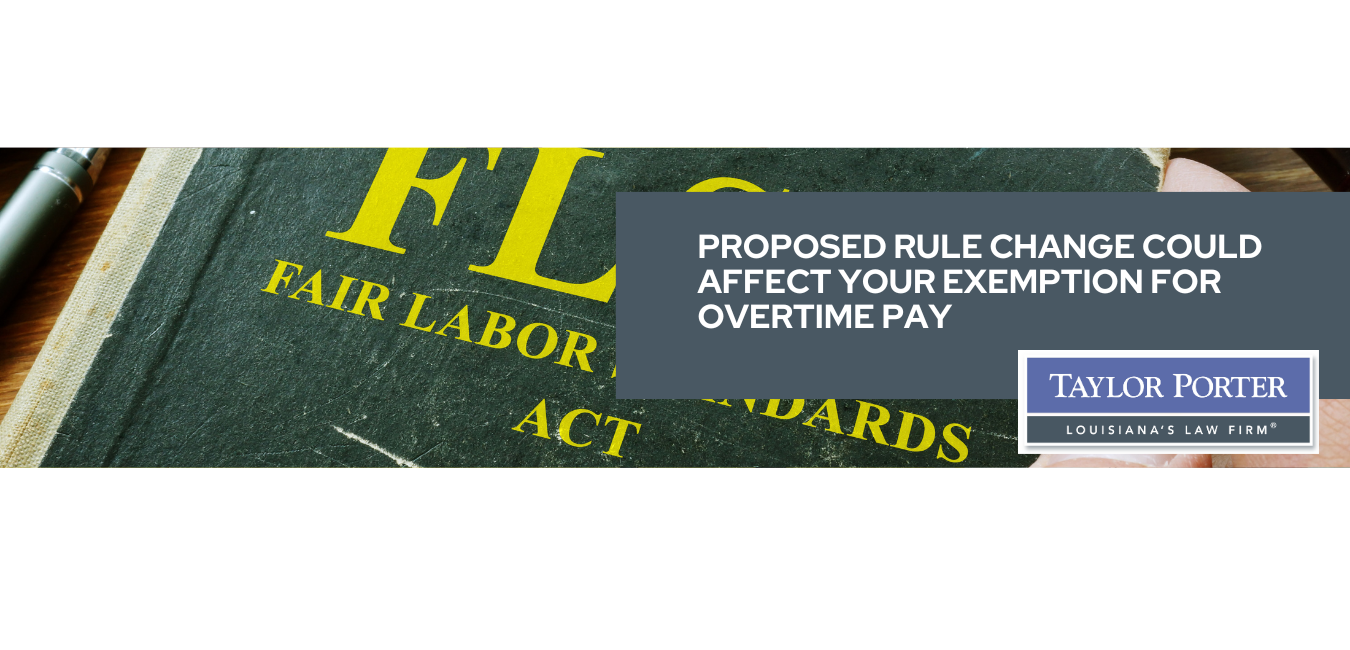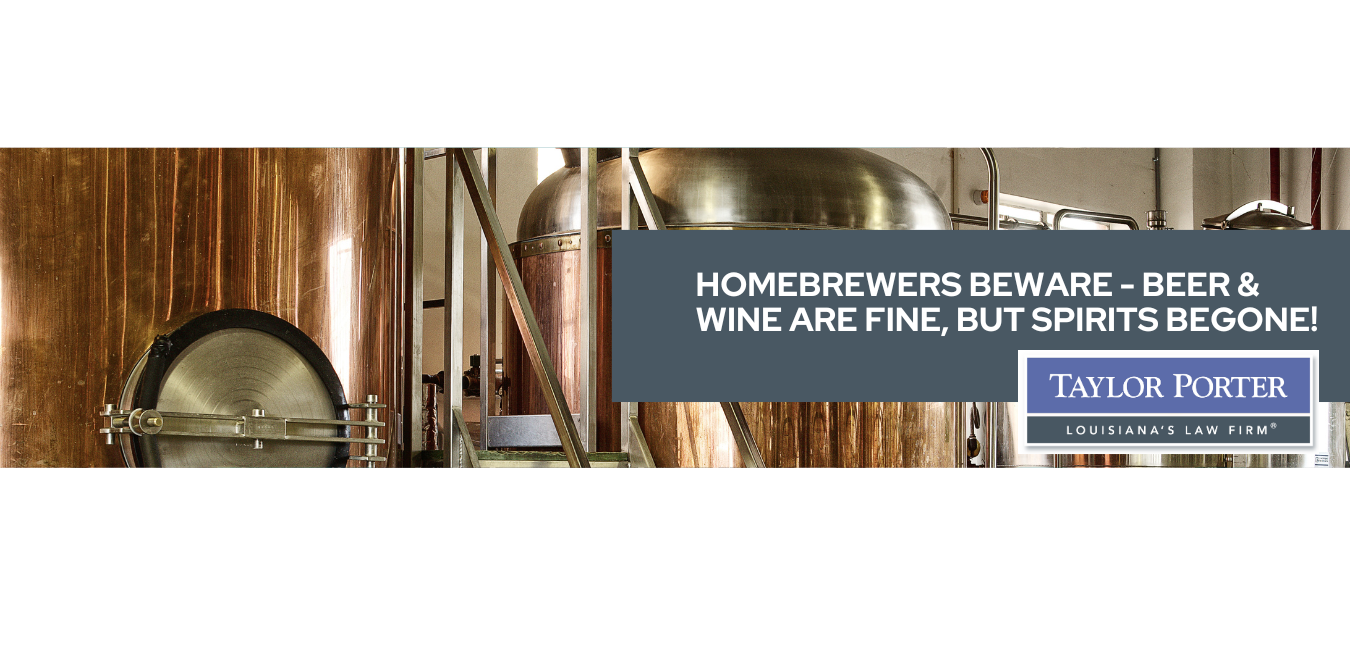U.S. Supreme Court Allows Post Trial Probing of Jury Deliberations
By Amy Groves Lowe
Partner, Taylor Porter
amy.groves.lowe@taylorporter.com
Click here to read article published in BRBA's "Around The Bar" magazine
 On March 5, 2017, the US Supreme Court ruled that the usual rule protecting the secrecy of jury deliberations is not applicable when there is clear evidence after a jury verdict that there was racial bias during deliberations.[1]
On March 5, 2017, the US Supreme Court ruled that the usual rule protecting the secrecy of jury deliberations is not applicable when there is clear evidence after a jury verdict that there was racial bias during deliberations.[1]
Miguel Pena-Rodriguez, a Colorado horse trainer, was arrested in 2007 after two teenage girls identified him as the man who groped them in a darkened restroom at a horse barn. At trial, the prosecution rested its case on the victims’ identification of the defendant. The defense highlighted the short time the girls actually saw the attacker and the way the police brought the girls to see the suspect (through the window of a police car). The defense also presented an alibi witness who testified that Pena-Rodriguez was with him in another barn when the attack occurred.
The jurors deliberated for 12 hours, during which much shouting could be heard outside the jury room. The jury found the defendant guilty on two misdemeanor counts. Pena-Rodriguez was sentenced to two years’ probation and was required to register as a sex offender.
On the day the trial ended, two jurors told the defense lawyers that during deliberations one of the other jurors, identified in court records as H.C., repeatedly expressed a bias against the defendant and his alibi witness because of their Hispanic ethnicity. With the trial judge’s permission, the defense lawyers obtained affidavits in which the two jurors quoted H.C. as saying that, from his experience as a former police officer, he suspected the defendant was guilty because Mexican men “believe[d] they could do whatever they wanted with women,” and that where he used to patrol, “nine times out of ten Mexican men were guilty of being aggressive toward women and young girls.” After receiving the affidavits, the trial judge ruled that there could be no questioning of jurors to see if a new trial was warranted because Colorado, like most jurisdictions, has a rule barring inquiry into what happens in the jury room. The Colorado Supreme Court, by a 4-3 vote, agreed.
The US Supreme Court reversed those decisions, declaring that “the central purpose” of the Fourth Amendment guarantee to equal protection of the law was to eliminate racial discrimination emanating from official sources in the states. Writing for the court majority, Justice Anthony Kennedy said that racial discrimination is unlike other types of misconduct that may occur in the jury room because it “implicates unique historical, constitutional and institutional concerns.”[2] Kennedy conceded that the US Supreme Court has consistently refused to allow post-trial probing of jury deliberations, both to protect the secrecy and candor of deliberations and to protect the finality of jury judgements. While Kennedy said it would not be possible to rid the jury system of “every irregularity,” “the same cannot be said about racial bias, a familiar and recurring evil that, if left, unaddressed, would risk systemic injury to the administration of justice.” For these reasons, the majority ruled that where a juror makes a clear statement that indicates he or she relied on racial stereotypes or animus to convict a criminal defendant, the Sixth Amendment right to a fair and impartial jury trial requires that the usual jury secrecy rules give way to permit the trial judge to consider whether there is evidence that the defendant has been denied a fair trial.
Although the Court gave very little guidance for what standard would be required to show prejudice, the majority did state that “not every offhand comment indicating racial bias of hostility will justify setting aside the no-impeachment bar to allow further judical inquiry.” There must be “a showing that one or more jurors made statements exhibiting overt racial bias that cast serious doubt on the fairness and impartiality of the jury’s deliberations and resulting verdict.” The opinion made clear that Pena-Rodriguez had satisfied this standard and was entitled to consideration of a new trial based on the juror’s statements.
The dissent, written by Justice Alito, stated that despite the “admirable intention of the majority,” its decision “is a startling development” that pries open the door of the jury room for the first time in centuries.[3] The ruling, he predicted, will “prompt losing parties and their friends, supporters and attorneys to contact and seek to question jurors, and this pestering may erode citizens’ willingness to serve on juries.”
The ruling left open some important questions related to allegations of racial bias in the jury. The court did not decide what procedures court should use when a defendant seeks a new trial based on testimony that one or more jurors was racially biased, nor did it weight in on what standard courts should use in deciding whether to order a new trial in such circumstances.
Footnotes
[1] Pena-Rodriguez v. Colorado, 580 US __ (2017).
[2] The majority consisted of Justices Kennedy, Ginsburg, Breyer, Sotomayor, and Kagan.
[3] The dissent consisted of Chief Justice Roberts and Justices Thomas and Alito.
This website is for general information purposes only. Information posted is not intended to be legal advice. For more information, please see our Disclaimer message.
See how we can help. Contact us today
8th Floor • 450 Laurel Street • Baton Rouge, LA 70801 • 225-387-3221
- Disclaimer
- © Taylor, Porter, Brooks & Phillips L.L.P. All rights reserved.






